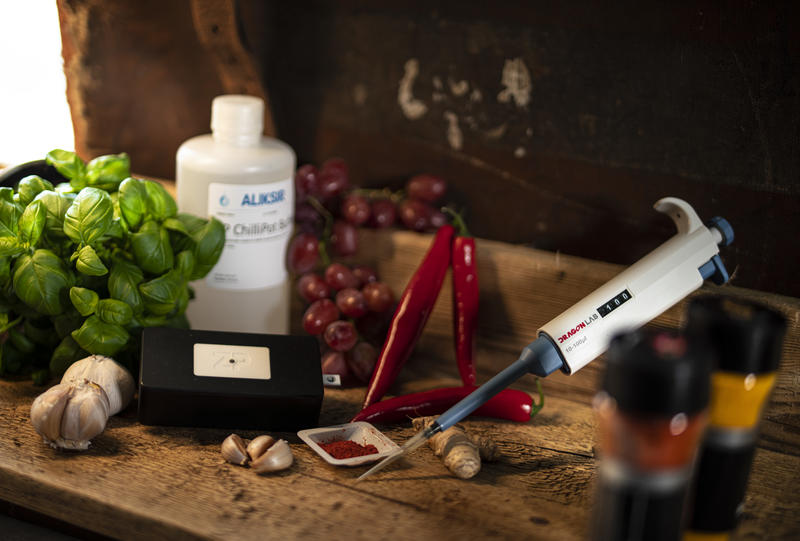Professor Richard Compton and his group’s research on electrochemical sensors led to a collaboration with Zimmer & Peacock (ZP), a UK electrochemical sensor manufacturing company, and the development of a series of handheld devices that measure analytes in food, drink and water (including chilli heat, garlic strength and ginger intensity). This technology uses principles in science and engineering that have many parallels with the glucose strips used to measure blood glucose in diabetic patients.
Prof Compton’s research group developed an adsorptive stripping voltammetry technique to reliably quantify the concentration of capsaicin (chilli heat) in a sample. The technology was licensed to ZP in 2017 who developed the ChilliPot, a sensor to measure the hotness of chillies and chilli derived products. Chillies are used ubiquitously throughout the food industry, and in order to ensure consistency there is a need to assess chilli strength, but existing assessment methods such as organoleptic (taste) testing and high-performance liquid chromatography (HPLC) are time-consuming and costly. The ChilliPot is accessible and easy to use, delivering results to an integrated smartphone app within a minute.
The Compton group also developed an electrocatalytic method to measure the strength of garlic by identifying the presence of disulphides, and a mediated electron transfer technique to detect Escherichia coli (E. coli). ZP licensed these technologies and launched the GarlicPot in 2018 and a 30-minute assay for the rapid detection of E. coli in 2019. This speed is especially important for detecting the presence of E.coli in food, as current methods of pathogen and microbial testing can take 3 days or more, in which time contaminated products risk being shipped to supermarkets and consumers.
This longstanding collaboration has enabled ZP to utilise Compton’s diverse research by creating FoodSense, a multi-analytical device capable of measuring capsaicin in chilli, diallyl disulfide in garlic, gingerol in ginger, curcumin in turmeric, vanilla aldehyde in vanilla, pH and E. coli. These devices are now being sold across the globe to growers, producers, manufacturers, distributers and food technologists to ensure quality and safety within the food and drink industry.

©ZP
ZP are an ISO 13485 certified business for the development and manufacture of electrochemical sensors and in-vitro diagnostics.
Professor Richard Compton's research group has a long-standing interest in understanding electrochemical processes, from fundamental electrochemistry to making chemical sensors (gas sensors, blood sugar, pH). Areas of interest include developing energy storage and conversion devices (fuel cells, solar cells, batteries), electrochemistry in nanoelectrodes, and bioelectrochemistry.